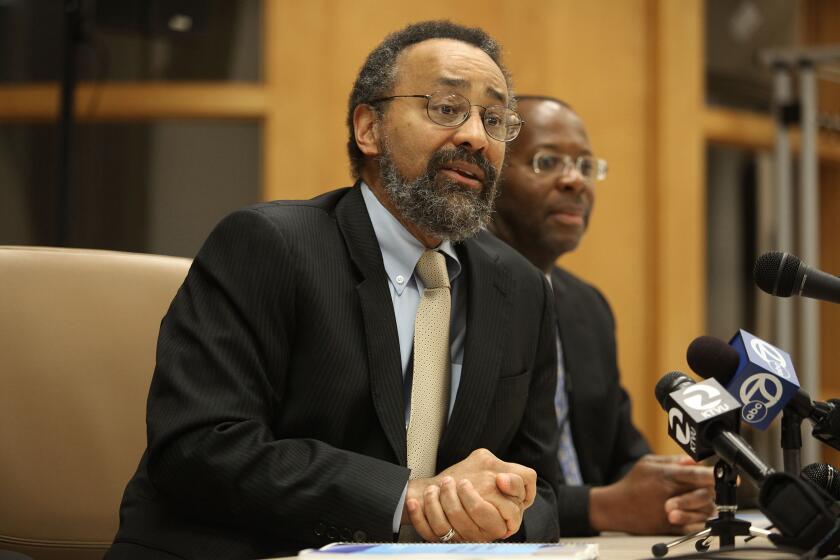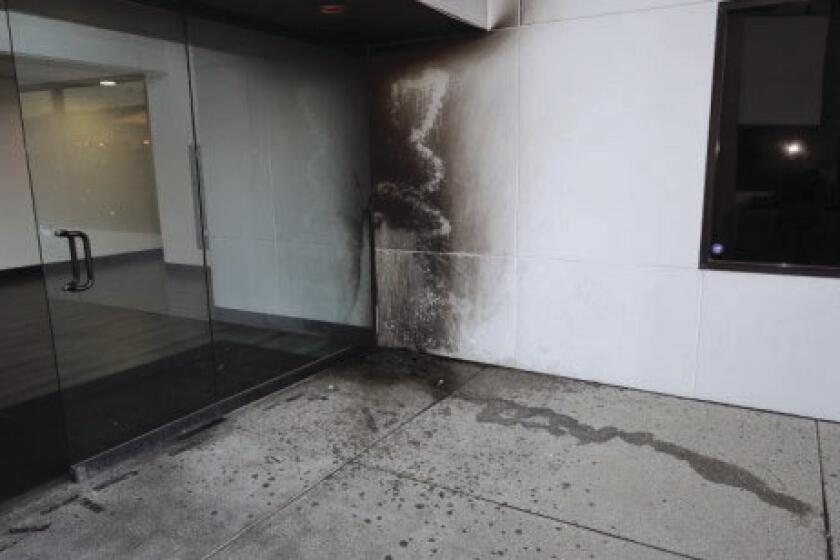Papers Given Added Shield in Libel Suits : Law: An appellate court ruling limits the money that Judge Calvin P. Schmidt can collect if he wins his action against the Orange County Register.
In a decision that offers newspapers increased protection from libel suits, a state appellate court has sharply curtailed the amount of money that Harbor Municipal Judge Calvin P. Schmidt can collect if he wins his libel suit against the Orange County Register.
In a unanimous decision released Monday, a three-judge panel of the 4th District Court of Appeal held that Schmidt cannot collect general or punitive damages from the newspaper if he wins his lawsuit because he served his demand for a retraction on the Register’s editor. The California Civil Code requires that demands for retractions or corrections be served on the publisher.
If Schmidt proves that the newspaper libeled him in 1988 and 1989 articles about a sex-and-influence scandal in Harbor Court, he can collect only “special” damages, which reflect out-of-pocket expenses to the plaintiff, such as attorney’s fees, said his lawyer, H. Warren Siegel.
Siegel said he will appeal to the state Supreme Court. The appellate court ruling allows newspapers a dangerous amount of freedom by making only one person--the publisher--the acceptable conduit for a demand for a retraction, Siegel said.
“I’d hate for the courts to say that as a part of public policy in California, the press can disregard the truth because it knows it can’t get hit for damages,” Siegel said.
The panel certified its decision for publication, meaning that it can be cited as precedent in libel cases in Orange, San Bernardino and San Diego counties. The judges reversed an April ruling by Superior Court Judge William F. Rylaarsdam, who refused to throw out large portions of Schmidt’s suit.
Register attorney Duffern H. Helsing could not be reached for comment Monday.
Schmidt’s lawyer had argued that the demand for retraction was proper because the newspaper’s publisher had delegated authority to the editor.
But the appellate court noted that although the editor often decides whether to publish a retraction or correction, ultimate authority rests with the publisher.
The court said that the Civil Code “unambiguously” requires that such demands be made to the publisher.
“If the demand be mistakenly made on a subordinate, the publisher need not worry about a lawsuit for general or punitive damages,” Associate Justice Edward J. Wallin wrote for the court. “The demand may be ignored without legal consequences unless it is served upon the publisher.”
In enacting that portion of the code, the court said, the state Legislature intended to “encourage a more active press by means of an increased insulation of newspapers from liability arising from erroneous published statements.”
The court noted that in his letter to the Register editor, Schmidt referred only to allegedly false statements made in a March 9, 1989, article, even though his lawsuit deals with two additional articles as well. The panel said that since Schmidt made “no demand” for retractions of the other two articles, “any claim for damages based on them is obviously barred.”
More to Read
Start your day right
Sign up for Essential California for news, features and recommendations from the L.A. Times and beyond in your inbox six days a week.
You may occasionally receive promotional content from the Los Angeles Times.






